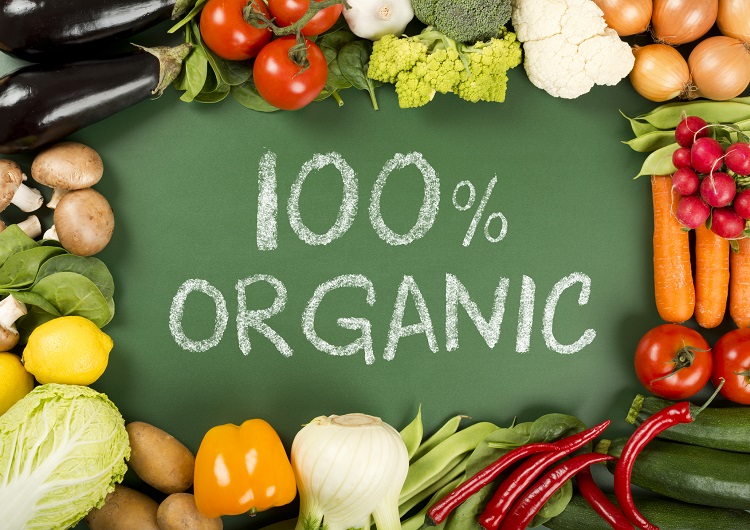
The word “organic” has become a popular symbol of sustainability and quality among consumers since its meteoric rise in popularity in the 1990s. While it may come at a cost, consumers are more than willing to pay. Why? Why? pesticidesFertilizers, GMOs and synthetic additives have all become synonymous with healthy, ethical and environmentally friendly consumption.
Do consumers prefer the “organic” label? If not, then why not?
Does the word organic still matter to consumers?
It is difficult to give a definitive answer to this question, as opinions vary greatly from person to person, not to mention from country to country. Sales of organic products are a clear indication that consumers have a positive attitude towards them.
Statista is a market intelligence company that provides information on organic retail sales in the European Union (EU). In 2022, these sales will reach a new record of €45.1 billion in Europe and €53.1 billion in all European countries. This is good news for Europe, as it proves that the EU is moving towards environmentally friendly food systems.
Charles Redfern of Realfoods Organico told FoodNavigator that organic is at the heart of EU policy, including the Green New Deal, farm to fork and the stated target of 25,% of organic farming in the EU by 2030.
This figure is also expected to increase, as Mintel (a market research firm) found that Millennials and Generation Z (ages 16-24) were the two groups most likely to purchase organic food and beverages.
Do consumers still want to pay more for organic products?
The answer still seems to be yes. As with everything, there are a variety of factors and situations. In the case of buying organic food, these variations seem to be generational.
A Mintel spokesperson says younger consumers will pay more for organic food and drink.

Environmentalists are warning brands against assuming that all eco-conscious customers and those who buy organic products are young. Climate tracking company Reewild The study shows that older consumers generally spend more money on environmentally friendly products than younger shoppers. This may be a result of higher disposable income.
Reewild also found that the organic market is able to withstand consumer pressures brought about by the cost of living crisis. These positive results are also the result of consumer demand for better value for money and if costs are high, there will be sacrifices.
The affordability of sustainability has been around for many years. In 2023, it will become more relevant as the rising cost of living limits the adoption of sustainability. Climate change is a major concern for consumers, and they are willing to do whatever it takes to help protect our planet. “They want to adopt sustainable lifestyles, but high prices still limit wider adoption,” said a spokesperson for Euromonitor International.
Why should food manufacturers prioritize organic products?
No one can deny that it is difficult to obtain organic certification of a product. The EU must approve the production process. Implementation is costly for all organizations, large or small.
FoodNavigator reported that Ofir Ardon is the commercial director of Agritask. The company provides information on the sourcing of crops. This means that they are produced without GMOs and have limited use of pesticides, artificial fertilizers or hormones. They also meet strict conditions for production, handling, transportation and storage.

It can also be a daunting task for food and beverage manufacturers to prove that a product has been produced organically.
The data collection process is daunting. Ardon explains that food and beverage companies must maintain different versions of questionnaires tailored to specific crops, regions and certification needs. The challenge of aggregating data from small farms in different regions can be challenging, but it is compounded by the lack of standardization and data structures. Technology helps make data collection easier, but most farmers still rely on manual processes.
Should manufacturers still strive to be organic? Short-termists might argue that organic isn’t worth it because there are savings to be made. If you’re going to do it long-term, you’re better off going organic or staying organic. Why? Why? Many consumers even expect it. If your product doesn’t meet organic standards, you could be left behind on the shelf—literally and figuratively.

It seems to be a good thing for consumers that more and more food and beverage producers are adopting organic production techniques.
“Despite the challenges, the food industry understands the market’s desire for sustainability certifications. “They provide consumers with assurance of the authenticity and integrity of the products they purchase and will help brands prepare for the future as regulatory requirements become more stringent,” Ardon says.
It’s not just about profitability, success and growth of brands and businesses. Many food and beverage suppliers and producers are committed to producing high-quality products that help protect the environment.
Redfern of Realfoods Organico says there is a community of pioneers and die-hard organic believers. There are also farmers who are turning to organic for business reasons and because they believe in the environmental benefits.